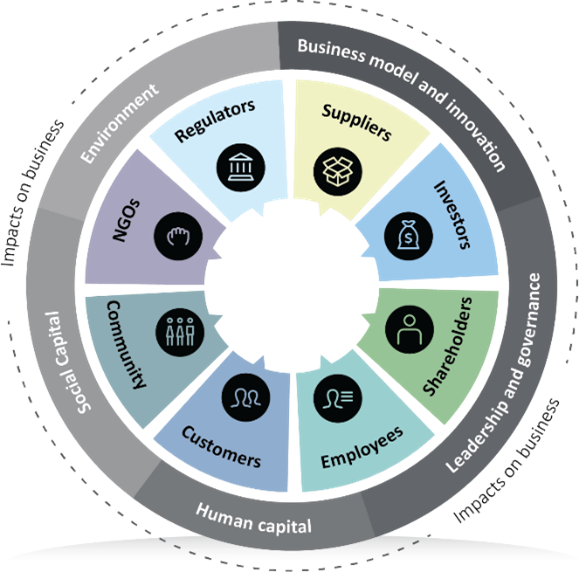Navigating ESG: A Corporate Journey
Written by: Lara Moody | May 6, 2024
At the recent International Production & Processing Expo (IPPE), the American Feed Industry Association hosted an educational session called, “Feed Your ESG: How Feed Will Help Hit Sustainability Targets.” While I spoke about Institute for Feed Education and Research’s sustainability efforts underway to support the feed industry and our customers, I took away much more from the panel discussion with Mike Gauss, president of KENT Nutrition Group, who shared insights into his company’s efforts to advance ESG in practice.
ESG is the acronym for the evolving landscape of corporate sustainability; in essence the implementation of Environmental, Social and Governance (ESG) strategies that are increasingly seen not just as compliance, but as core to business operations. Or, as Gauss stated:
“ESG risks and opportunities are business risks and opportunities.”
In a way, the KENT Corporation is using its ESG efforts to formalize what they consider inherent – “just doing the right thing” initiatives. The company’s leadership recognized the need for an ESG statement to align with the company’s business practices. Sustainability efforts need to be an integral part of doing business, not just an add-on, Gauss explained. While KENT already had been practicing many aspects of ESG, formalizing those practices allowed them to measure, monitor and communicate their efforts more effectively. ?
KENT’s “sustainability” statement: 
“KENT Corporation has always maintained a deep commitment for producing quality products in a manner that creates economic, environmental and social benefits for our employees, our customers and the communities we serve. In a rapidly changing landscape, KENT embraces sustainable policies that add to the longstanding family legacy of meeting the diverse needs of individuals, families and businesses worldwide.”
The journey took time, as KENT’s leadership assessed what it meant for them and selected focus areas that aligned with their values and stakeholder expectations. This process involved engaging various stakeholders—employees, customers, local communities and directors—to prioritize initiatives through a materiality assessment. The assessment helped them identify key focus areas that were in common across their stakeholders and business units, notably, emissions and energy management, and employee health, safety and well-being. These core focus areas led to the development of their sustainability pillars: Social Responsibility, Economic Stability and Environmental Footprint, which highlight the interconnected nature of ESG components.
Advancing an ESG program requires a thoughtful and well-measured approach. Through development and implementation, companies must work to ensure that their ESG efforts to solve one problem do not create others.
Integrating ESG into Business Operations
Recognizing ESG risks and opportunities as integral to their business strategy, KENT has worked to embed these considerations into every aspect of their operations. This integration reflects a continuation of viewing ESG not as a separate corporate responsibility but rather a component of overall business health and longevity.
KENT has seen tangible results from their long-term approach to sustainability, including significant reductions in emissions and waste. These achievements are integral to their operational efficiency and cost-saving measures. The company's approach extends beyond environmental impact; the company is actively involved in community engagement and improving employee welfare, demonstrating the 'social' aspect of ESG in action.
As the company continues to act on its core mission, the leadership team focuses on areas like renewable energy investments and sustainable product innovations, further demonstrating the potential to drive business transformation and community engagement.
Gauss’s insights showcased how a robust ESG strategy can be more than just a regulatory requirement. As companies worldwide grapple with these themes, the journey of this particular company serves as both a blueprint and an inspiration, illustrating that effectively integrating ESG strategies can enhance operational efficiencies, foster employee loyalty and contribute to a sustainable future.